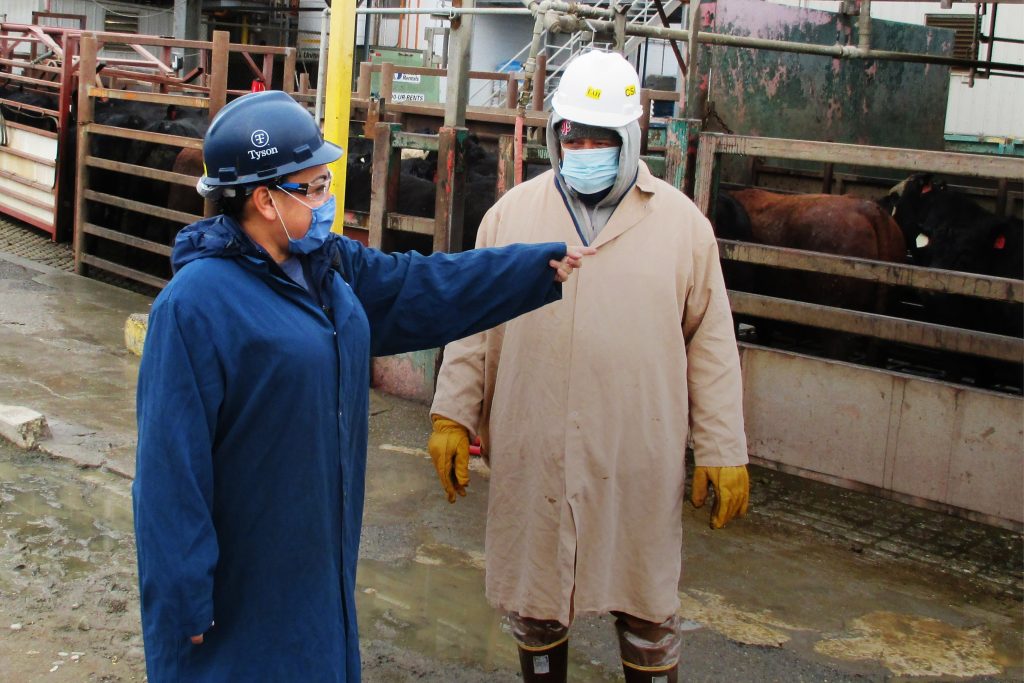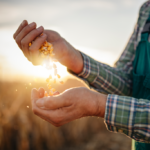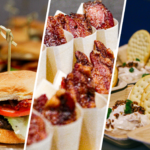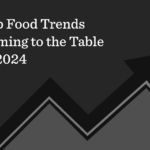Our vision for animal welfare is simple: to be a leader in animal welfare through compassionate care based in sound science. Part of being a leader means an openness to creative thinking, innovation, and continuing to develop practices. We recently announced our evolving welfare approach and the integration of a new animal welfare framework across global operations, known as the Five Domains.
The framework is a progressive, conceptual animal welfare framework that recognizes both positive and negative mental states of the animal through four domains – nutrition, physical environment, health, and behavioral opportunities – which ultimately contribute to the fifth domain: the mental state.
Integrating the Five Domains across our global operations allows us to assess the welfare state of animals more comprehensively and accurately within our supply chain, advancing our animal welfare practices worldwide.
We asked team members across our global operations to provide their perspective on the Five Domains and the importance of a strong animal welfare culture.
Lamont Washington, an animal welfare specialist in Arkansas, believes integrating the Five Domains framework into everyday operations is a great opportunity for Tyson Foods and is confident that this transition will only make the welfare of our animals that much better.
“The Five Domains presents us with the opportunity to assess our welfare program through science and accurate interpretation of the data collected. The Five Domains will empower us and our livestock and poultry farmers to look at welfare not as a check-the box system, but as a program where we grow, deliver, and sustain the care of our animals.”
Washington also noted that the Five Domains framework gives him the procedural guidance he needs to truly understand what we are doing right in our welfare program and where and how we can improve.
Harry Chen and Nammon Wongratanasopone are both very involved in our international animal welfare practices. Chen, a quality assurance manager based in China, and Wongratanasopone, a veterinary service manager in Thailand, play an important role in ensuring animal welfare is top of mind at the facilities they work in.
“Deploying the Five Domains animal welfare culture across Tyson Foods means learning how to distinguish if animals are in a good/positive state or bad/negative state both physically (environment, healthy, water/food intake and expression of natural behavior) and mentally (no pain, being hurt and suffering). This will be applied across the supply chain as we’re committed to caring for animal conditions around the world,” Chen said.
“The Five Domains will be more practical to understand, implement, and measure,” Wongratanasopone said. “The Five Domains are intended to reduce negative experiences and promote positive experiences
by creating greater balance across the animal’s needs.”
Stacy Barton recognizes that by evolving animal welfare practices, Tyson is clearly indicating the importance animal welfare is to the company.
“In the past, we have been more reactive and not as proactive as we need to be,” Barton, an animal welfare specialist in Arkansas, said. “This framework change allows us to evaluate the whole environment of the animals to provide the best-case scenario for our animals to thrive. When you take care of the nutrition, living environment, health, and include behavioral opportunities for the animals, then you will have succeeded in caring for the animal’s mental state. With the improvements in these five areas, you are doing what is right by the animals.”
Jean-François Legrand, a quality assurance manager in Paris, says there are many benefits of the Five Domains welfare framework. In addition to a better approach to taking care of the animals, the framework can help streamline information and allow the company to focus on more tangible actions and results which will drive transparency and ultimately reinforce Tyson’s leadership in animal welfare.
“The Five Domains is reflecting a new energy in Tyson’s animal welfare programs.”
Caring about animals is inherent to who we are as a company. To learn more about how we’re continuously improving animal welfare, please visit www.tysonsustainability.com





